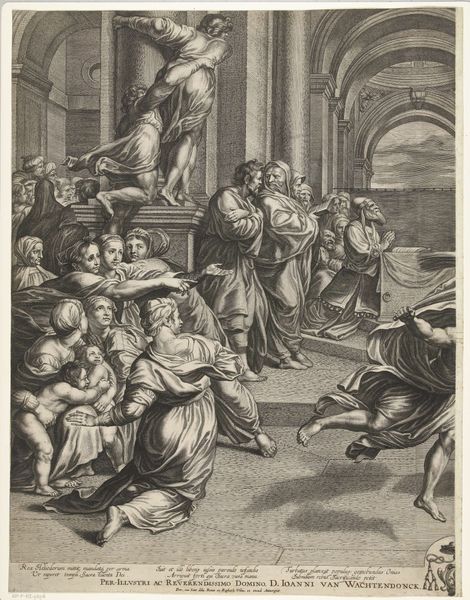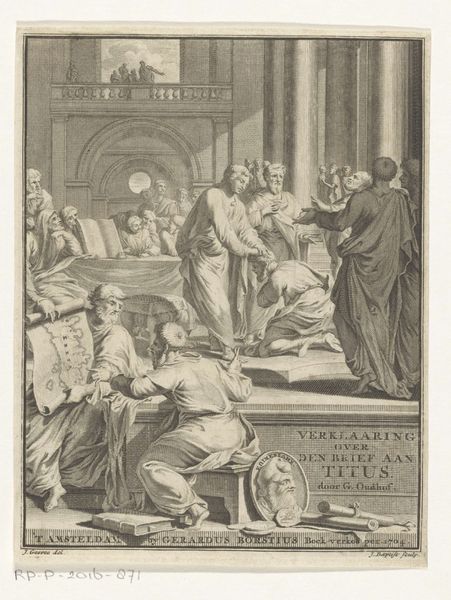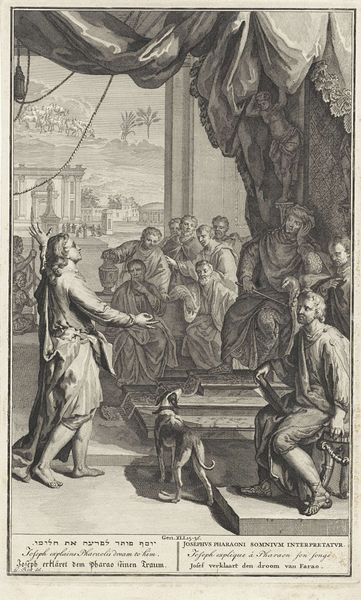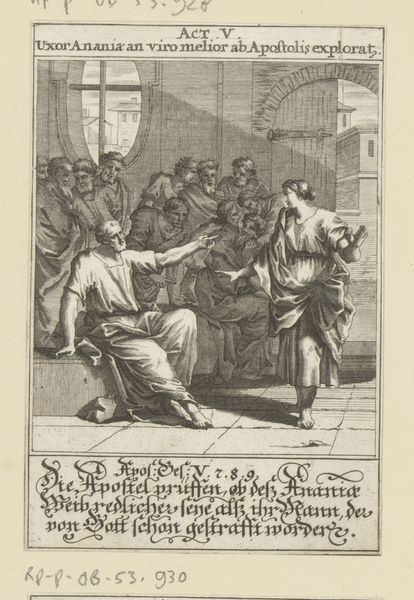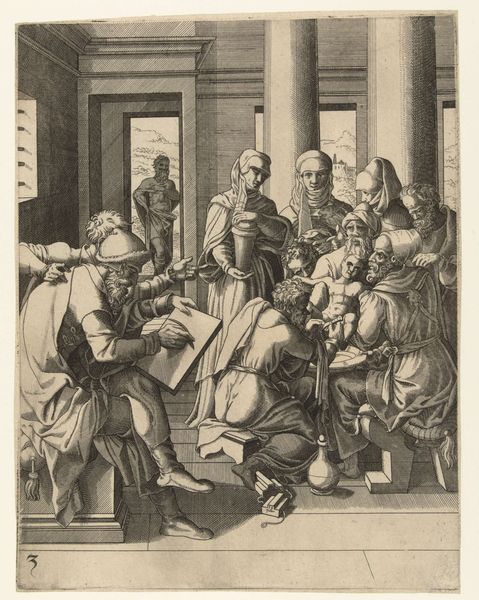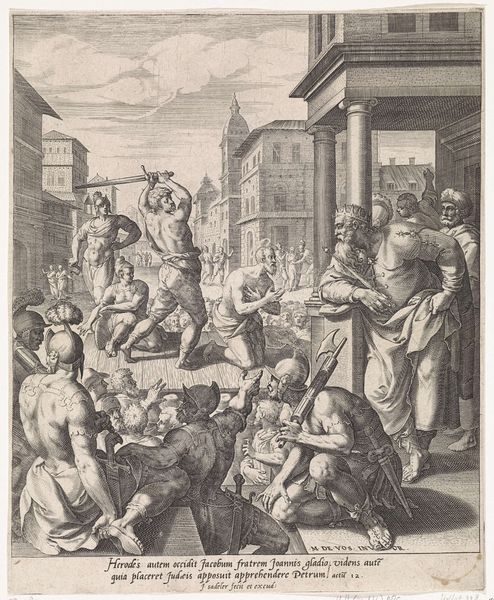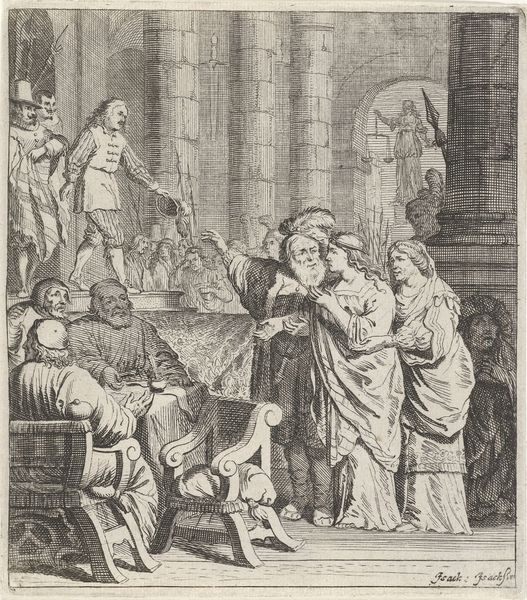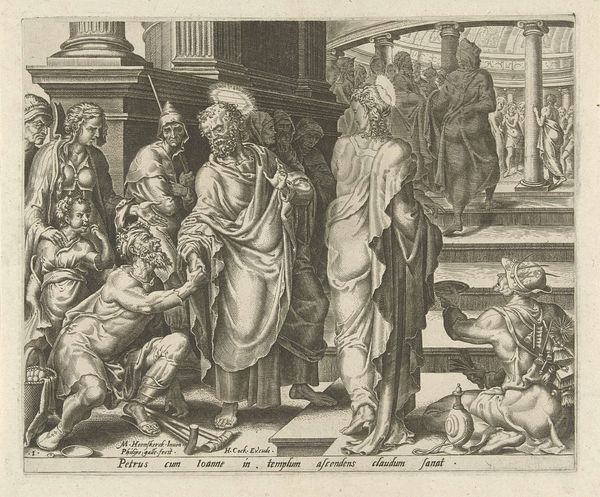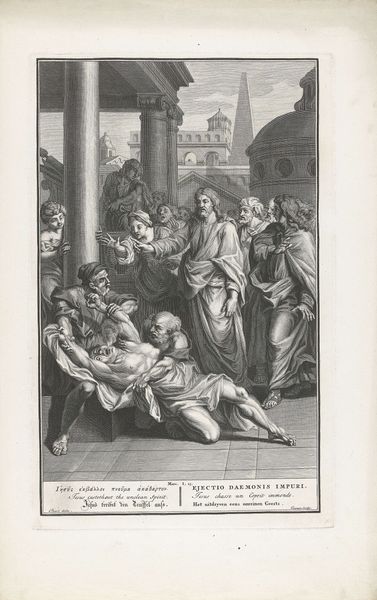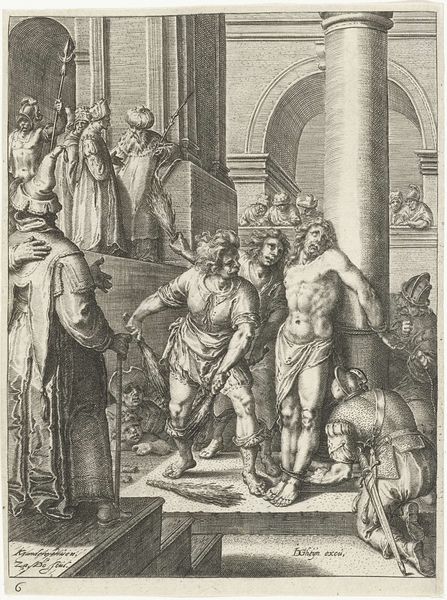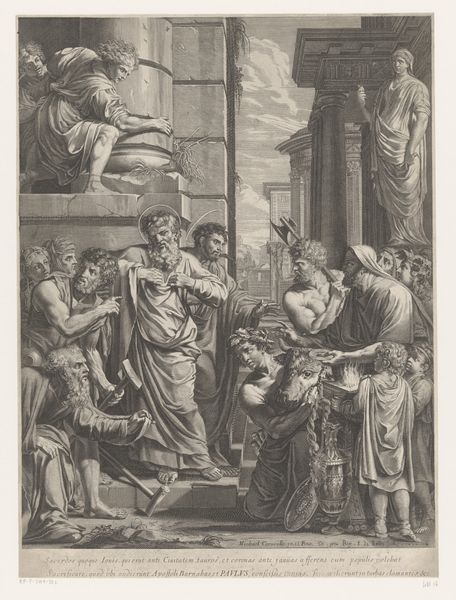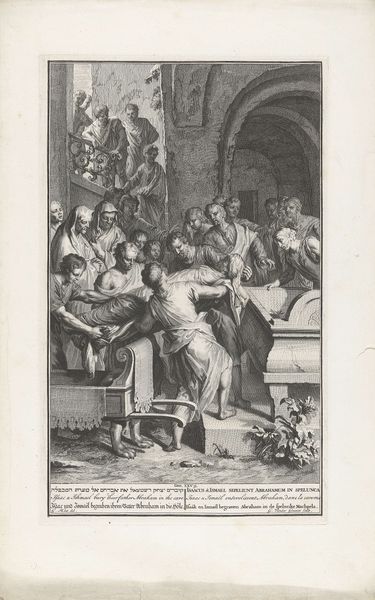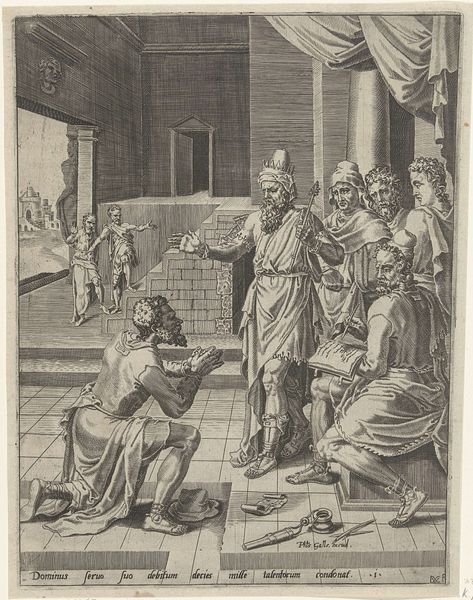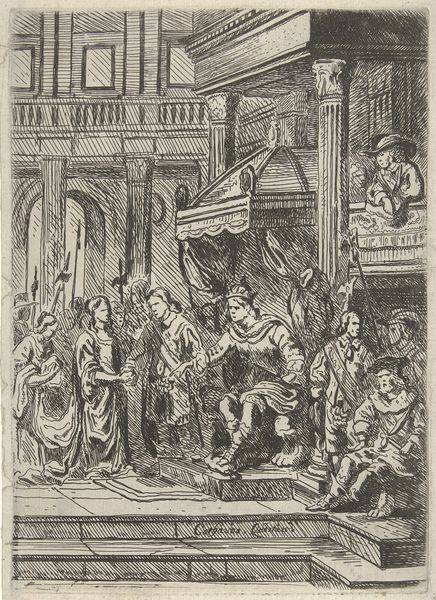
print, engraving
#
narrative-art
#
baroque
# print
#
old engraving style
#
figuration
#
pen-ink sketch
#
line
#
pen work
#
history-painting
#
engraving
Dimensions: height 178 mm, width 128 mm
Copyright: Rijks Museum: Open Domain
Curator: The dramatic tension in this 1681 engraving, "Christ before Pilate," is palpable. Rendered by Hendrik Causé, the scene pulsates with the moments leading up to a pivotal decision. What's your immediate read? Editor: The overriding visual impression is one of stark theatricality, the strong diagonals emphasizing the drama as figures gesture emphatically under the cold gaze of Pilate and the haunted visage of Christ. It feels very stage-managed, performative even. Curator: That theatricality connects directly to the Baroque period's artistic emphasis on drama. Here, we see it serving a particular historical narrative but also reflecting larger societal anxieties about justice, power, and guilt. The very act of Pontius Pilate publicly washing his hands reflects his attempted detachment from an act of grave injustice, echoing themes of institutional failings of our day. Editor: I agree. Notice the powerful visual symbolism associated with handwashing throughout history—a ritualistic purification, distancing the self from defilement. Here, Causé cleverly incorporates the inscription “Pilatus Judex,” subtly implicating not only Pilate but the entire system. It brings a chilling ambivalence. Curator: The composition subtly reinforces Pilate's power by positioning him above the crowd while Jesus appears bound and vulnerable, embodying themes of martyrdom and sacrifice central to Christianity. Editor: And what to make of that intense crowd, a mix of accusation and silent complicity? It evokes how crowds, historically, have been mobilized around ideology and how that mob mentality serves systems of control. Each figure—the stoic guard, the impassioned accuser, and the pensive onlookers—speaks to universal psychological archetypes found across time. Curator: Causé offers us a tableau deeply entwined with socio-political themes, asking us to interrogate not just a biblical event but broader questions about authority and the systems we uphold, themes that continue to reverberate in contemporary conversations about power and oppression. Editor: An apt reminder that history, myth, and symbolism interweave to continuously reinterpret narratives that speak directly to the human condition and the enduring battle between the oppressed and their oppressors.
Comments
No comments
Be the first to comment and join the conversation on the ultimate creative platform.
